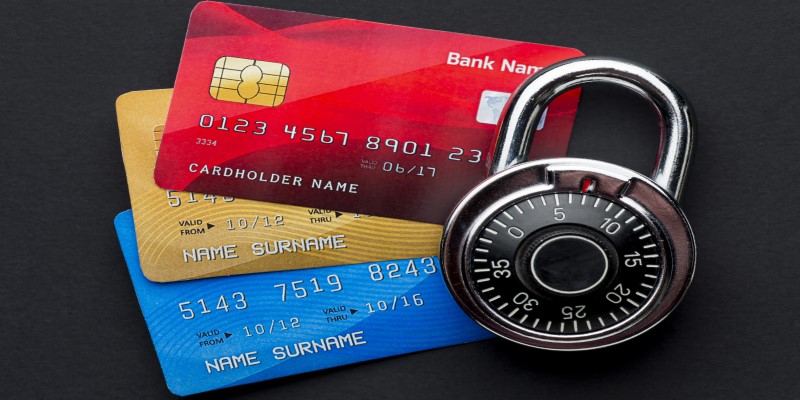Chip Shortage May Dent Supplies of Credit and Debit Cards: A Complete Overview
Feb 01, 2024 By Susan Kelly
The current worldwide shortage of chips might seriously disrupt the electronic payment infrastructure. The Smart Payment Association has warned about serious disruptions if the problem is not addressed, outlining the significance of payment cards for daily life and trade.
According to the report, more than 3 billion EMV-based payment systems are generated annually worldwide for customers who establish bank accounts, renew them after expiry, or replace them. However, supply chain bottlenecks are making it harder and more expensive for card makers to acquire chips.
The industry group for payment cards and mobile payments has asked governments and other stakeholders to do more to increase supply to prevent a crisis. The report found that payment cards facilitated between 40 and 60% of all internet purchases and about 90% of all non-cash consumer payments made in brick-and-mortar establishments.
Therefore, maintaining commerce and everyday living necessitates safeguarding the payment card supply chain. Chipmakers' activities had to be suspended last year due to the epidemic. When they finally reopened, a lot of work was waiting for them.
A rapid increase in the demand for electronics worldwide slammed them as they stumbled back. Severe scarcity of components has plagued the semiconductor industry in recent months, affecting not just personal computers, mobile devices, and video game consoles but also cars.
Due to a shortage of chips, machinery producers had to pause their assembly lines. It also seems that the shortage is increasingly affecting other industries. The organization boasted that it provided the banks with its services under unusual conditions, providing payment cards even during lockdowns and at odd hours due to the epidemic.
According to the organization, the chip supply constraints have gotten to the point where card makers find it more difficult to get chips. This shortfall is predicted to last into 2022. It warned that a big disruption is probably on the way, impacting cardmakers' capacity to satisfy the entire demand.
The group also said it had taken steps to guarantee a sufficient supply of payment cards but that governments could do more. It said that the association's collaboration with card producers entails "every effort" to minimize disruptions in care delivery.

Which People Get A Card And Which Don't?
If the demand for chips exceeds supply to the point that manufacturers can't meet it, financial institutions must prioritize which customers receive cards. What is the most important factor? Most likely, how often you use your card.
King warned that this might cause problems. When asked, "Who are the inactive ones? Imagine, for example, a single mother with two jobs who rely on a credit card for unexpected expenses. The card may expire without being replaced.
If financial institutions run out of credit lines and active users take them, they can lose access to it. If we only have a small number of cards and can't reissue them when they expire, people who are poor and need them for emergencies could lose that ability.
The Payments Leadership Council expressed concern that the shortfall would slow business activity, slow the economic recovery, and limit the government's capacity to assist if necessary.
The Council on Foreign Relations explained that "as the federal government proceeds to merge debit cards for social security payments and relief programs. This scarcity might have the unintended effect of slowing the flow of help to citizens throughout the nation." Last year, the IRS used prepaid debit cards to distribute some stimulus payouts.
Also, security might become a problem. The Council has said that there are several security risks due to the potential lack of chip-enabled cards. "Without chips, issuers may be compelled to resort to providing mag-stripe only cards, potentially undoing improvements in fraud prevention in recent years and putting customer data more insecure."

5 Strategies For Community Banks To Address The Card Chip Shortage
Despite these rising worries, local banks may take measures to prepare for a future shortage and avoid impacting their customers. To keep your bank on top of card issuance and ready to satisfy the demands of its customers, consider the following measures.
- Make an extension request with Visa or Mastercard. In most cases, chips are good for up to six years after they were issued; however, this varies depending on the card network. As the expiry dates of chips and physical cards don't always coincide, if the chip's lifetime increases, the card will remain valid until its stated expiration date.
In other words, extending the time for the chip may lengthen the life of the card itself. Inquire further with your credit card processor for further information.
- Pre-ordering is encouraged. The average turnaround time for a card order is 12 weeks, but suppliers are warning that new orders might take as long as 20 weeks due to a severe shortage of supplies.
If you want to ensure everyone has what they need to satisfy their consumers, don't wait until you've reached your typical reorder levels before placing an order.
- Rethink the timing of mass inventory orders and rebranding. Reduce card reissuance to just those "must-do" circumstances to react to low inventory and availability. Such measures include postponing massive reissues and rebranding initiatives. Issue replacement cards on an individual basis and only when required.
- Think about contactless. Since the chips included in contactless cards are distinct from those in conventional cards, now is an excellent moment to investigate making a move.
A digital wallet's contactless payment option is expanding at a quicker rate than that of traditional plastic card purchases. Therefore, it may be a good time to implement the adjustment. Your card manufacturer might provide the number and kind of chips in stock.
- Examine distributing virtual cards. It's a big change to go from a plastic card to a card that doesn't exist anywhere except on a computer, but virtual cards are gaining popularity among corporate clients.
According to PYMNTS research, about 23% of accounts payable specialists want to include virtual cards in their larger B2B operations. Because of this, the expiration of consumers' current chips or cards may provide an opportunity to test out a completely virtual card in a pilot program.
Conclusion
A lack of semiconductor chips has become a significant concern for financial institutions as the effects of COVID-19 persist and spread. The payments sector is now seeing the consequences of problems reported for months by industries as diverse as vehicle manufacturing and consumer electronics.
Budgeting for Tomorrow: Reeves Implements Tax Increases to Fund UK Investments

Analyzing the Best and Worst States for Retirement Living

Understanding Pet Wellness Plans: Ensuring Coverage for Routine Care

Comprehensive Crump Life Insurance Review: What You Need to Know

Different Features of S and P 500 Index Funds

Unlocking the Mysteries of Credit: How Your Credit Limit Can Make or Break Your Credit Score

IOSCO’s global stablecoin program

What Exactly Are Pain and Suffering?

Gravestone Doji Pattern: Mastering This Powerful Trading Signal

